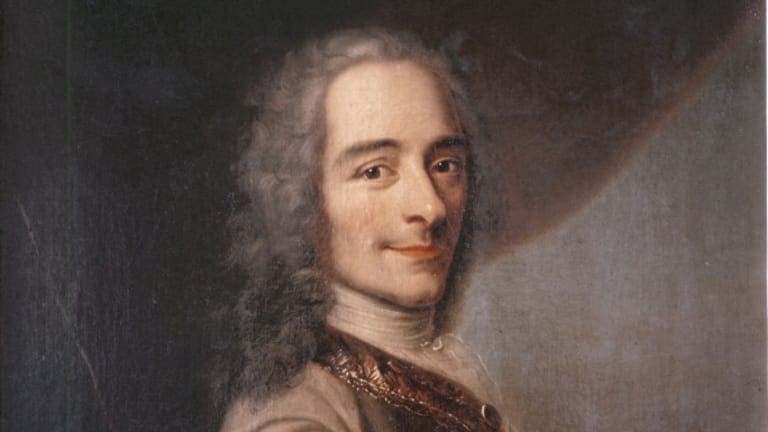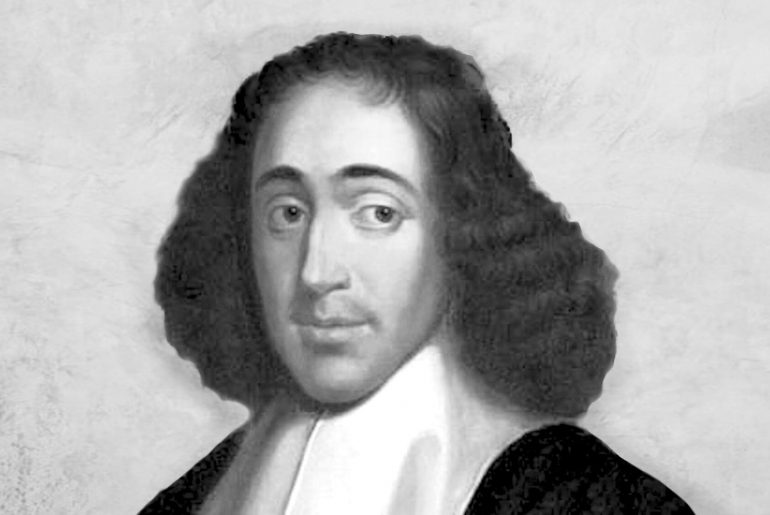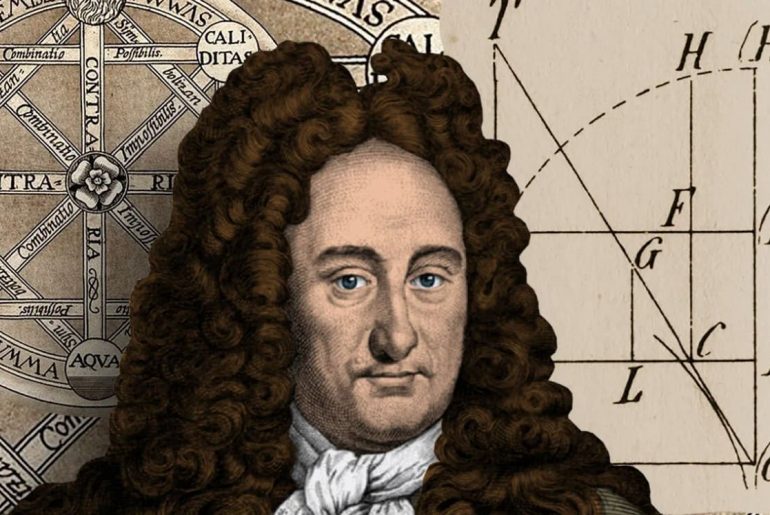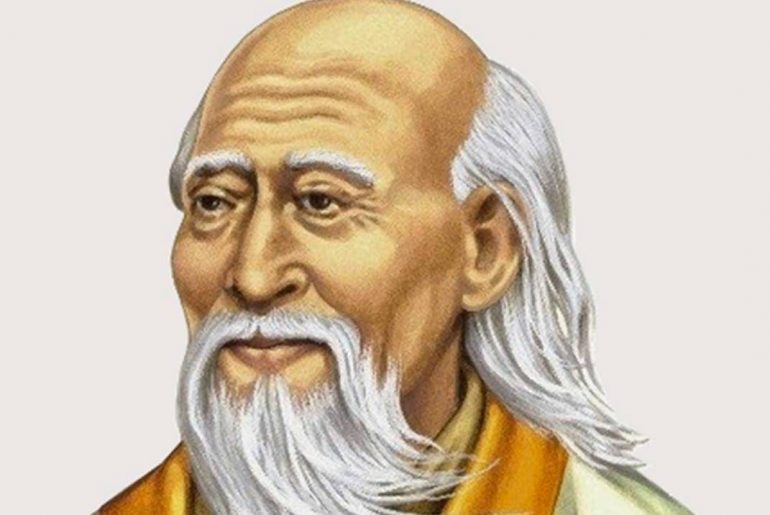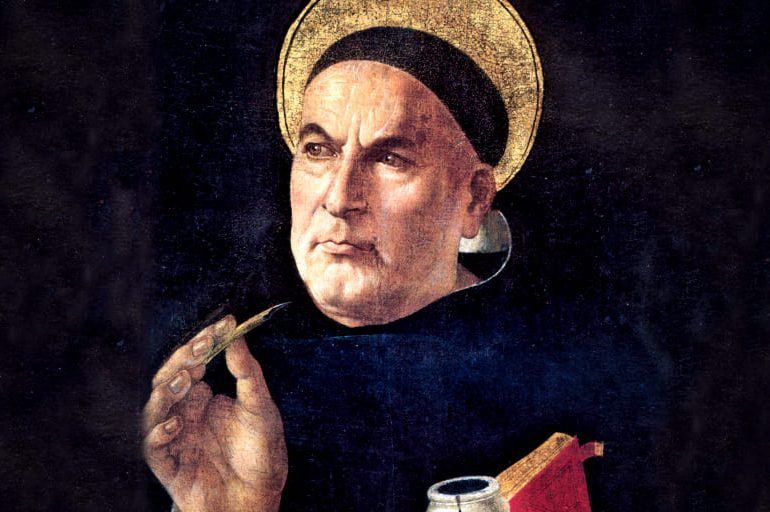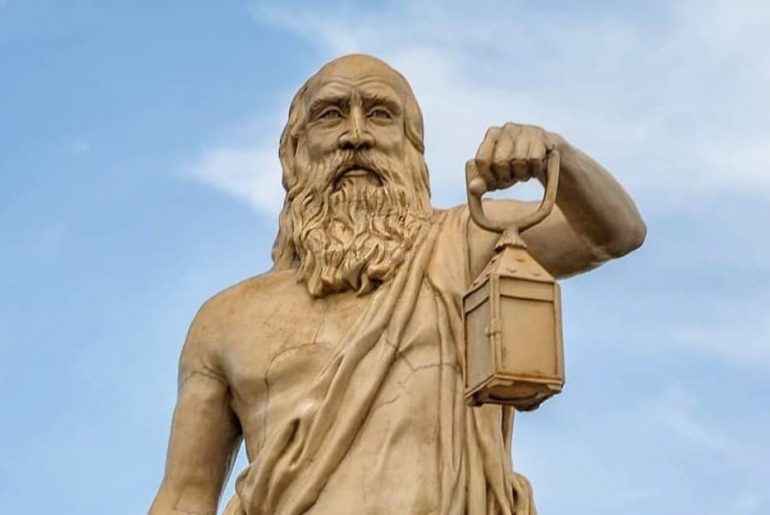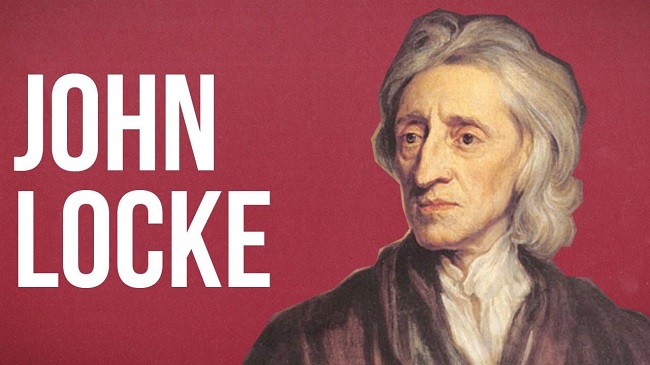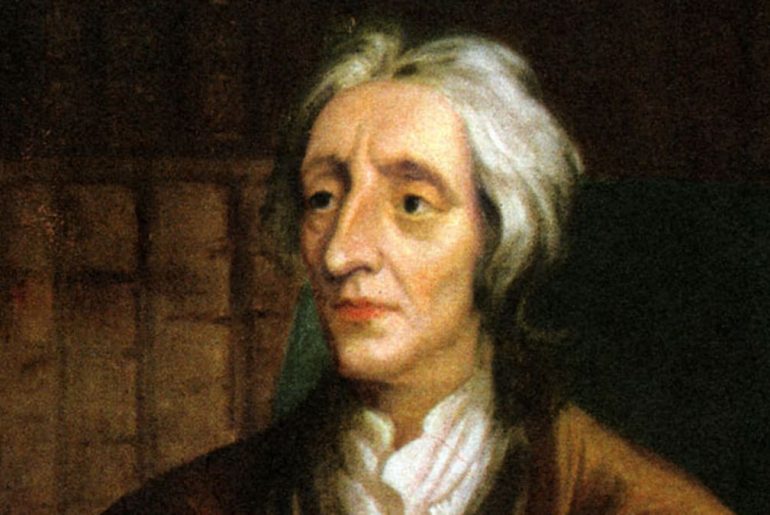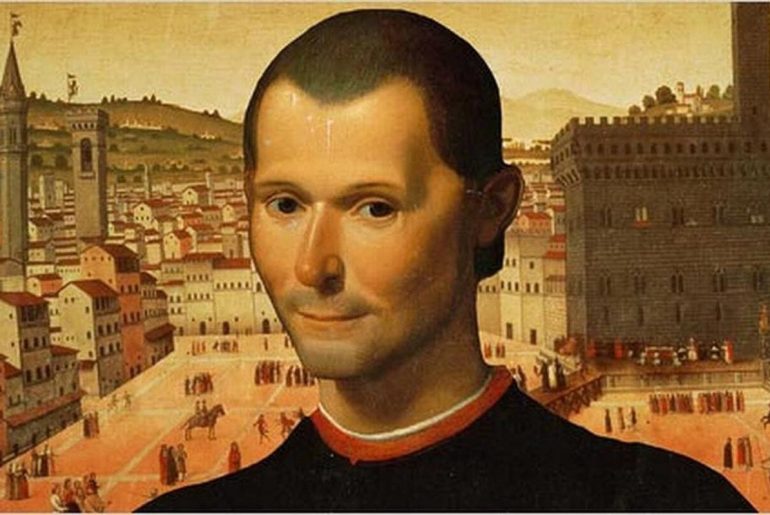The French writer and philosopher is the most important personality of the European Enlightenment in the 18th century. With his criticism of the abuses of absolutism and feudal rule, as well as the ideological monopoly of the Catholic Church, Voltaire advanced to become one of the key drivers of the reform movement of the Enlightenment (from 1780) and then of the French Revolution (1789-1799). In his philosophical and literary works he formulated the values of reason, tolerance, human rights and human dignity. His main philosophical works include the “Lettres philosophiques ou lettres anglaises” (1734), the “Traité de métaphysique” (1734) and “Sur l`homme” (1738). In his literary work, Voltaire belongs to the tradition of French classicism. As a historian, he excelled through his groundbreaking critical study of sources…
François Marie Arouet was born in Paris on November 21, 1694, the son of a notary.
At the age of 10 Voltaire was enrolled in a Jesuit college, College Louis-le-Grand. There he was trained and educated until 1711. He left school at the age of 16 and, through the mediation of his godfather, Marquis de Chateneuf, entered the circles of the free-thinking Parisian aristocracy. Because of his artistic talent and his witty sense of humor, he was extremely popular in society and a welcome guest. Voltaire was already writing successful epigrams and satires at this time. When Louis XIV died, a satire written and published about the dead king was mistakenly attributed to Voltaire. Since he was known for his satires, he could not refute the accusation, whereupon he came into conflict with the monarchy for the first time. These differences resulted in the young Voltaire being imprisoned in the Bastille for nearly a year. The positive thing about this stay was that the tragedy “Oedipus” was created during these eleven months. With this work, Voltaire managed to soften the aversions directed against him by the court. The tragedy was a complete success.
In the same year, 1718, he adopted the stage name Voltaire. However, the resulting harmonious relationship between Voltaire and the court changed in 1726 when Voltaire again had a dispute with the Chevalier de Rohan. Voltaire was taken into custody again. However, this prison sentence was soon converted into a stay in exile. Because of this he lived in England from 1726 to 1729. In his “Lettres philosophiques” he wrote down all the experiences that he was able to gather during this time with British liberalism in the areas of the state constitution, religious thought, economics, philosophy and literature. These then appeared in London in 1733 under the title “Letters Concerning the English Nation” and a year later also in Ruon in French. In his writings, Voltaire criticized the French grievances and at the same time pointed out positive ways out. Because of this fact, he was forced to leave the city of Paris quickly. The Paris Parliament banned the inflammatory writings. Voltaire fled to Champagne. There he went to the castle of the Marquise du Châtelet in Cirey.
The Marquise, both his partner who inspired him intellectually and his lover, lodged him in her castle until her death in 1749. During this time together, the couple engaged in various scientific and historical studies. Voltaire’s writing “Eléments de la philosophie de Newton” (1738) as well as the poems “Le Mondain” (1736) and “Discours sur l’homme” (1738) date from this period. His social contacts were not idle during this time either. In 1736 Voltaire began a correspondence with the Prussian Crown Prince and later King Frederick the Great. By the time he returned to Paris in 1744, Voltaire had become very popular. In 1746 he became a member of the Académie Francaise and was given the office of royal chamberlain and historiographer. After the death of his beloved, Voltaire accepted Frederick the Great’s invitation and went to Potsdam in 1750. But the friendship that had developed through regular correspondence gradually began to crumble. Tensions between Voltaire and Frederick spread.
When Voltaire dared to write a satire about the president of the Prussian sciences, he fell out of favor with the Prussian king in 1753. These experiences and his views and relationship to Friedrich d. size described Voltaire in the writing “Mémoires pour servir à la vie de M. de Voltaire”. In 1755 Voltaire traveled to Geneva. But even here he could not stay long. He harbored clear differences with Rousseau and the city lords. They were annoyed by various descriptions of the city of Geneva found in the encyclopedia, inspired by Voltaire. This period was also the high point of his literary work. Voltaire wrote and authored many important works during this period: “Le siècle de Louis 14.” (1766), “Candide” (1759), “L’ingénu” (1767) or “La Princesse de Babylone” (1768). At the same time, Voltaire was also active from a humanitarian point of view. He campaigned vehemently for the ban on serfdom. He also set up businesses and schools on his country estates to help. In addition, he was repeatedly involved in legal proceedings that were influenced by religious fanaticism.
Through all his activities and works, Voltaire became one of the greatest thinkers of his time. When he returned to Paris for the premiere of his drama “Irène”, he was treated to a magnificent triumphal entry. During his performance, the statue of Voltaire was decorated with laurels. He enjoyed more honor and praise than almost any other writer.
Voltaire died two months later on May 30, 1778. Since he was refused burial in Paris despite his fame, Voltaire was buried in Sellières. As the revolution raged from 1789, the deceased was transferred to the Pathéon (1791). The philosopher’s heart has also been preserved and is kept in the Bibliothèque Nationale.
How did voltaire die?
Voltaire died in Paris at the age of 83. Stung by his ongoing criticism, the Roman Catholic Church refused to allow his burial in church ground. However, in 1791 his remains were transferred to the Pantheon in Paris.
Which of the following is most characteristic of voltaire’s ideas?
Empiricism and religious toleration are to be celebrated.
What is voltaire known for?
Voltaire was a versatile and prolific writer. In his lifetime he published numerous works, including books, plays, poems, and polemics. His most famous works included the fictitious Lettres philosophiques (1734) and the satirical novel Candide (1759).
Who did voltaire criticize?
Voltaire was a French Enlightenment writer, historian, and philosopher, who attacked the Catholic Church and advocated freedom of religion, freedom of expression, and separation of church and state.
What did voltaire do for the enlightenment?
Voltaire was a French Enlightenment writer, historian, and philosopher, who attacked the Catholic Church and advocated freedom of religion, freedom of expression, and separation of church and state.
How many books did voltaire write?
- Candid 1759
- Zadig or Destiny 1747
- Treatise on Tolerance 1763
- Micromegas 1752
- Letters on the English 1733
- Philosophical Dictionary 1764
- The Ingenu 1767
- Wives, submit yourselves to your husbands
- Philosophical Letters 1733
- Poem on the 1756 Lisbon disaster
- Complete Works of Voltaire 1968
- The Maid of Orleans 1752
What type of government did voltaire believe in?
Voltaire believed that the best form of government was a constitutional monarchy that relied on the advice of philosophers and men of enlightened thinking.
What was voltaire philosophy?
Voltaire believed above all in the efficacy of reason. He believed social progress could be achieved through reason and that no authority—religious or political or otherwise—should be immune to challenge by reason.
What is voltaire most famous for?
His most famous works included the fictitious Lettres philosophiques (1734) and the satirical novel Candide (1759). The former—a series of essays on English government and society—was a landmark in the history of thought. Today it is considered one of the great monuments of French literature.
Did voltaire believe in freedom of speech?
François-Marie Arouet, known to history as Voltaire, died on May 30th, 1778. He was a major figure in the Enlightenment, a writer, historian and philosopher, renowned for his advocacy of freedom of religion, freedom of speech, and the separation of church and state.
Where did voltaire live?
He was forced to flee to the French countryside after his “Letters Concerning the English Nation” was released in 1734, and he went on to spend the majority of his later life in unofficial exile in Switzerland.



